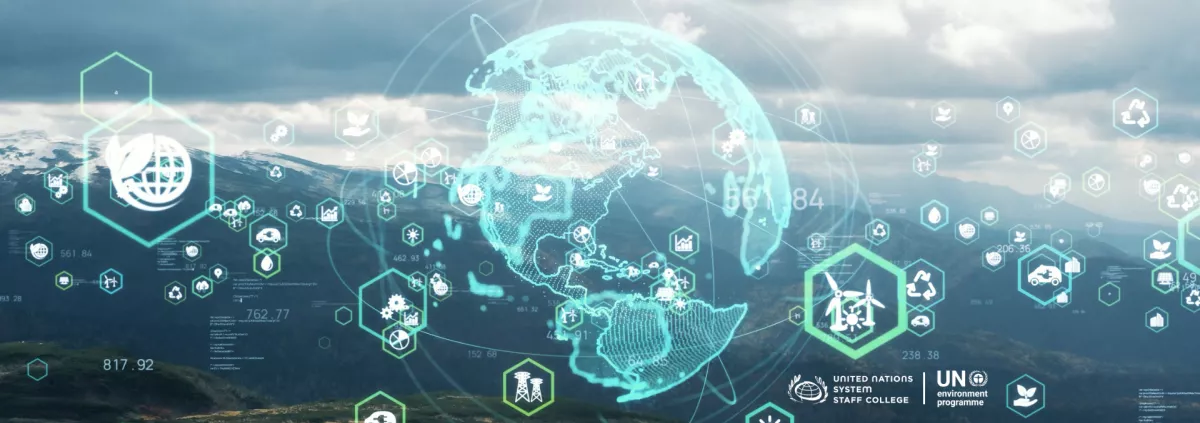Introduction
We live in a technologically advanced world, spending more than a third of our lives in front of a screen, connected with people and places across the planet - witnesses to the escalating catastrophes caused by environmental degradation and wealth inequality. Despite the power technology affords us, despite the heatwaves and hurricanes, and despite the growing alarm, we are not yet harnessing the full potential of digital technologies to make our world more sustainable, equitable and peaceful. Governments, businesses, civil society, and individuals have choices to make in harnessing and managing new technologies to safeguard the environment and human freedoms.
The Digital4Sustainability E-Learning Path explores the transformational role digital solutions and innovations can play in advancing environmental and social sustainability. In particular, how can the green transition be powered by digital technologies, and how can the digital transition be green ?
Target Audience
The Digital4Sustainability Learning Path is open to anyone who is curious to explore the answers to “what is the role digital technologies can play in advancing sustainable outcomes and what steps will be needed to get us there?”
Objectives
Upon successful completion of the learning path, participants will understand:
-
Key concepts, including digitalization, digital transformation, and digital sustainability
-
The role of digital transformation in countering the triple planetary crisis of climate change, nature loss and pollution
-
How to leverage the potential of digital transformation in advancing sustainability using a systems approach
-
The negative impacts of digital transformation and how to mitigate them to ensure it is inherently sustainable.
Methodology
There are four modules in this course which will be released successively during 2022-2023:
-
Module 1: An Introduction to Digital Transformation for Sustainable Development (now open)
-
Module 2: Digital Sustainability for Climate Action (releasing spring 2023)
-
Module 3: Digital Sustainability for Nature Protection (releasing summer 2023)
-
Module 4: Digital Sustainability for Pollution Prevention (releasing fall 2023)
Each module requires 3-4 hours of time and can be completed asynchronously following a self-paced learning method. Participants will receive a certificate of completion from the UN System Staff College and the UN Environment Programme for each module they complete.
Enrollment and cost of participation
The Digital Sustainability Learning Path is free of charge. However, the number of places is limited so it is important enroll as soon as possible. Sign-up here:
https://www.unssc.org/courses/digital4sustainability-learning-path
Collaborators
The Digital4Sustainability Learning pathway has been developed through a joint partnership by UNEP and the UN System Staff College (UNSSC) in collaboration with GIZ, the EU, the Coalition for (Digital Environmental Sustainability (CODES) and the Office of the UN Technology Envoy. The content has been inspired by the CODES Action Plan for a Sustainable Planet in the Digital Age.
Any questions can be directed to [email protected]

Hi Heiko - at the moment, the relationship between EMS and digital sustainability is not covered in the course. However, the course has been designed to be agile and easily edited. This is certainly something we can add - if the feedback indicates this is a major gap for entry-level content.